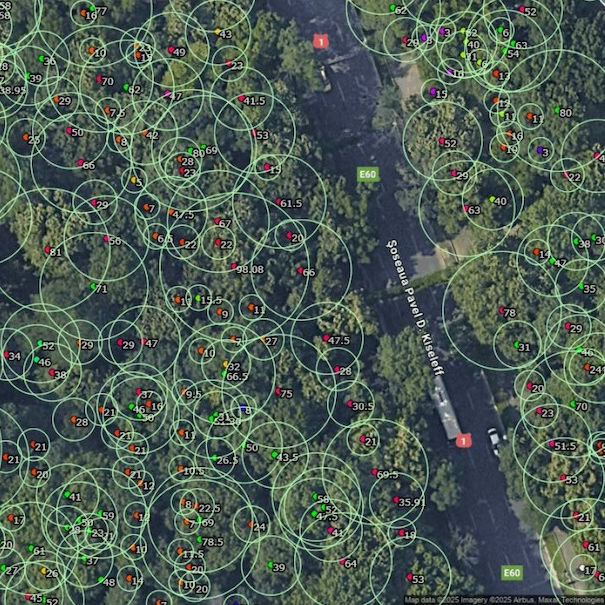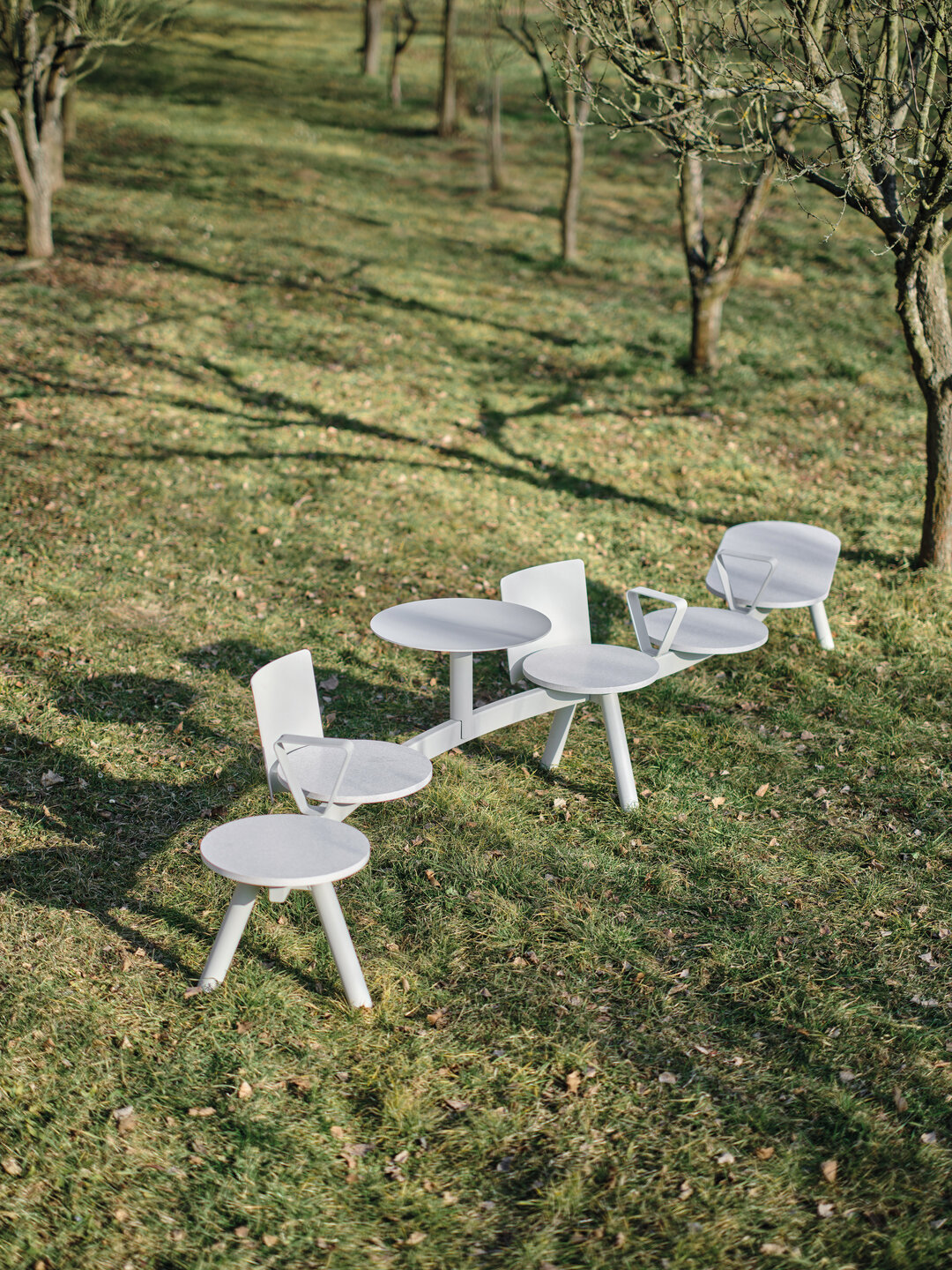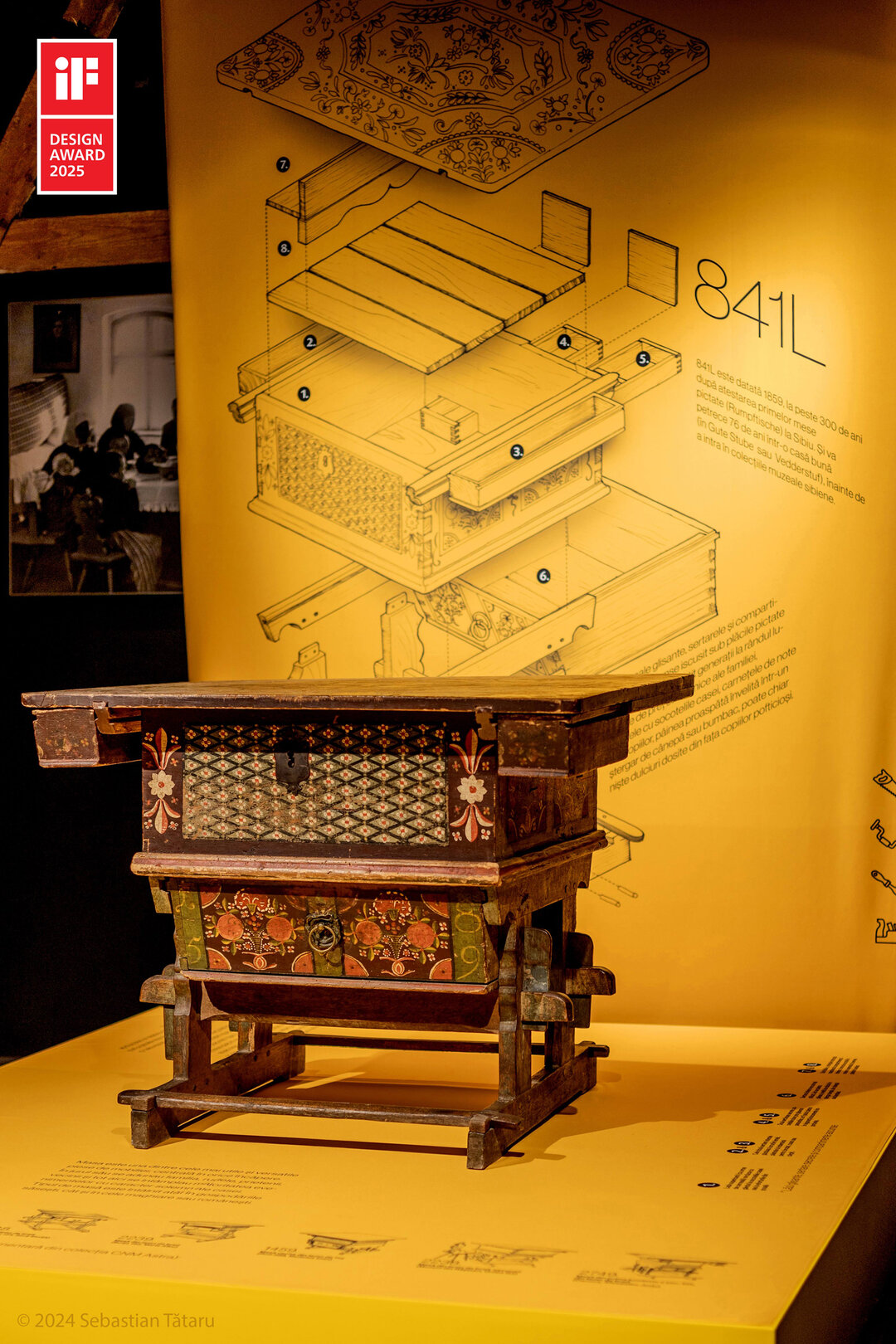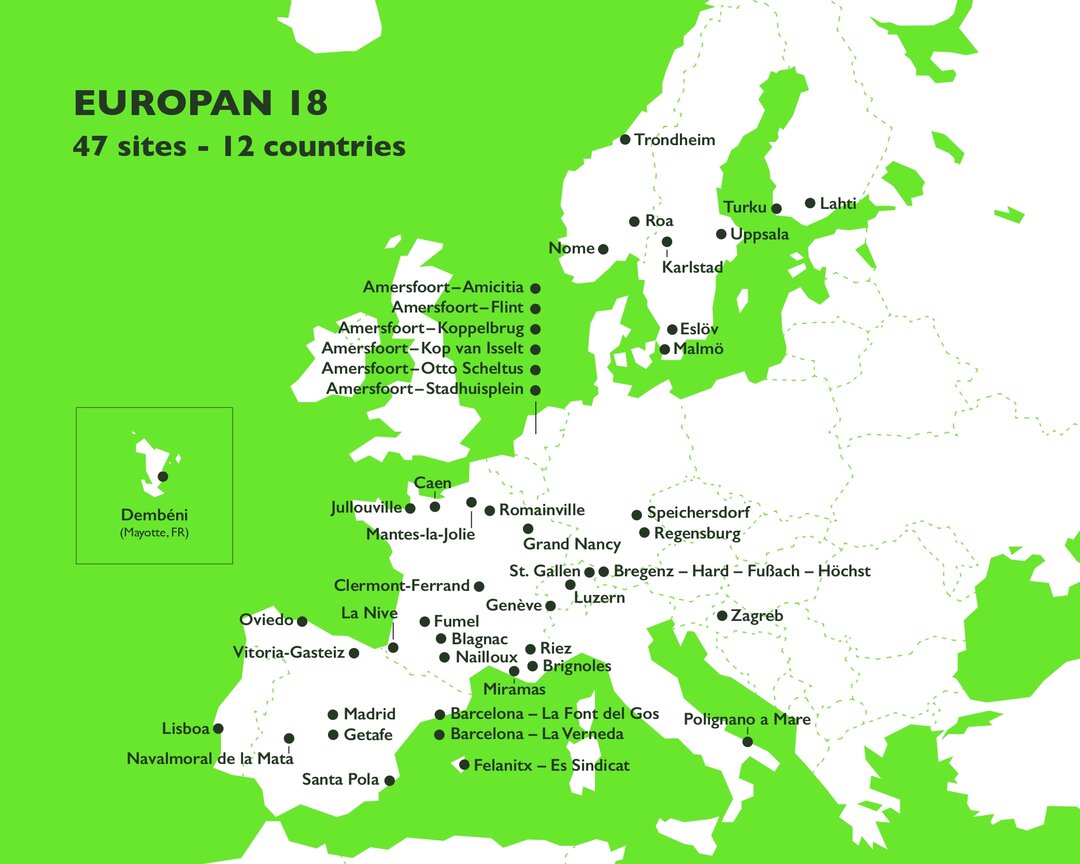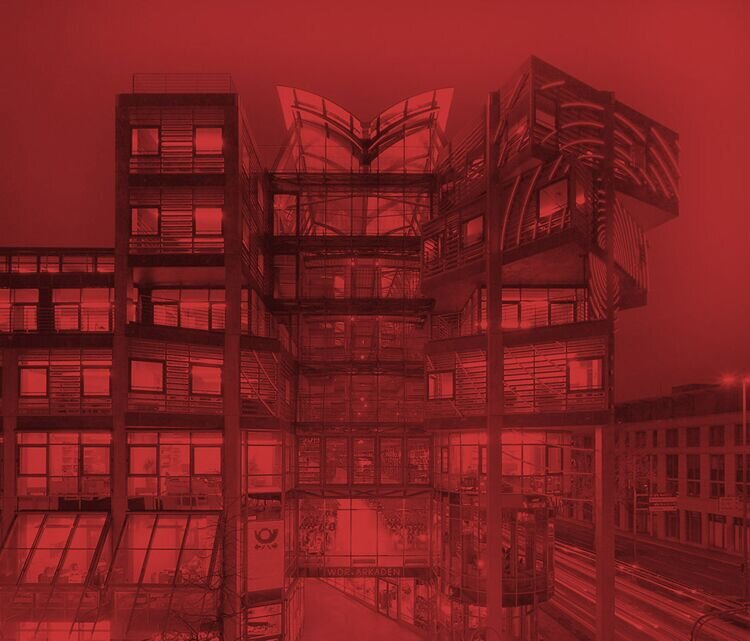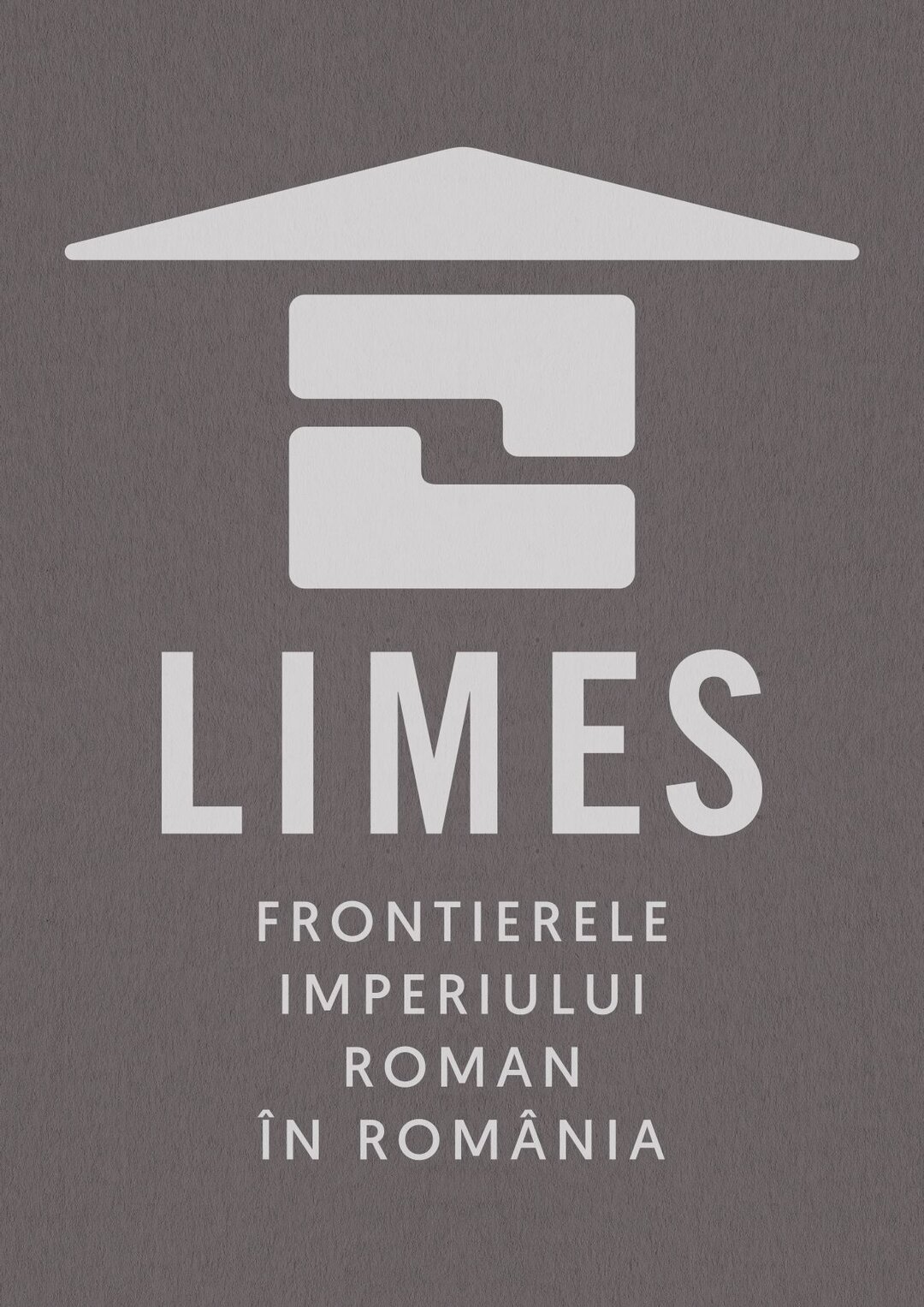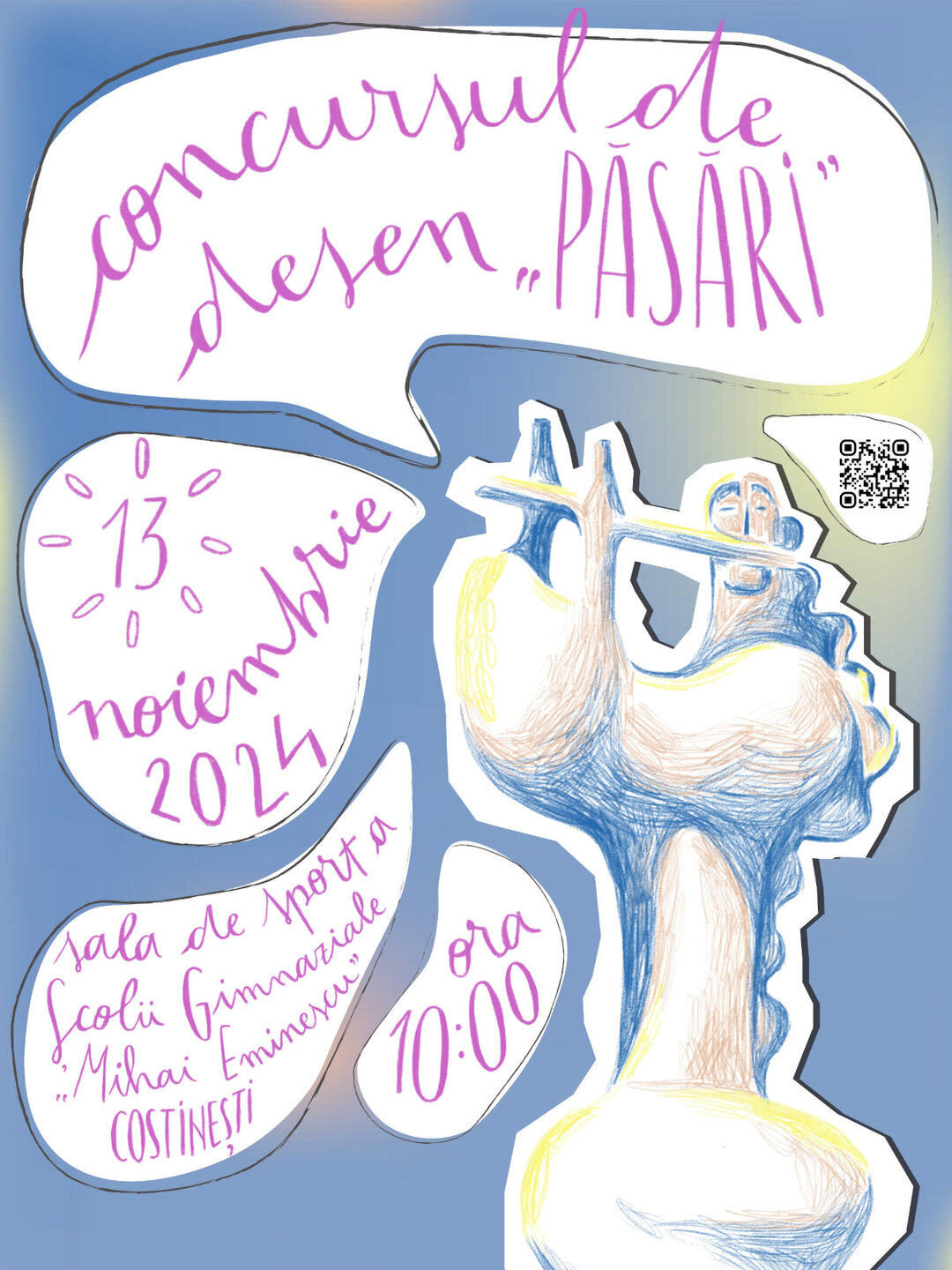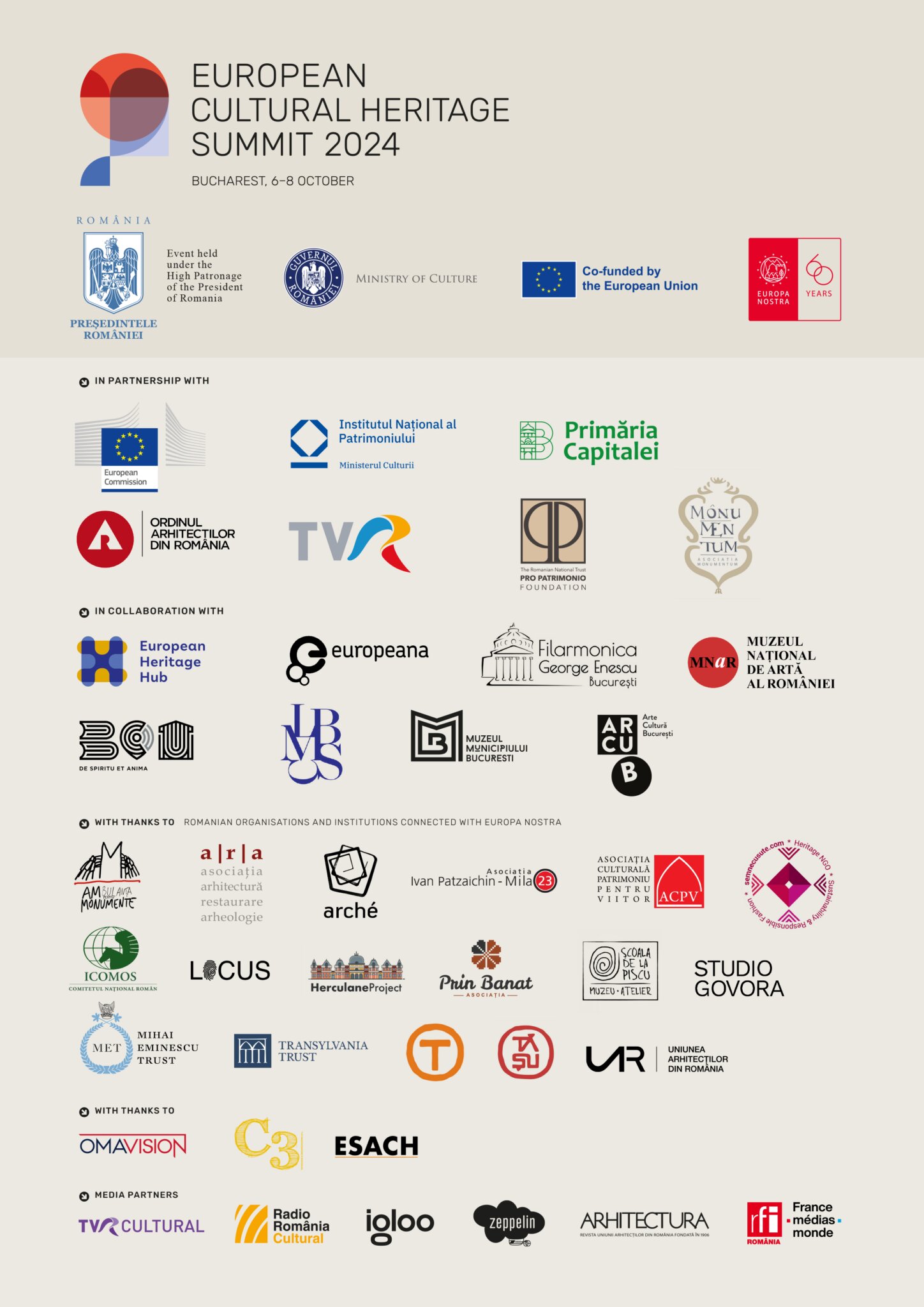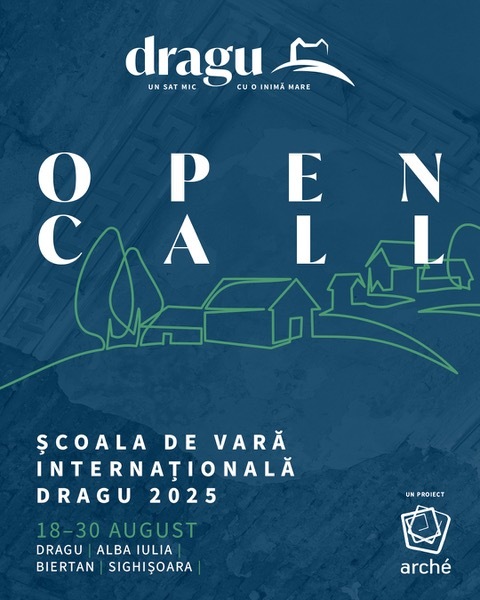
Bucharest becomes the capital of European cultural heritage in October
30.09.2024
European and Romanian public policy priorities to be agreed at the European Heritage Summit hosted by Bucharest
Romanian heritage specialists and activists to adopt a Manifesto for Cultural Heritage in Romania
Bucharest, September 18, 2024 - The public policy priorities for the protection of cultural heritage at the European Union level, for the mandate of the future European Commission and at the Romanian level, will be discussed by some of Europe's leading experts, high European and Romanian officials, who will gather in Bucharest, October 6-8, 2024, at the European Cultural Heritage Summit.
The 26 best heritage conservation projects awarded this year - including two from Romania(the Saxon Church of Alma Vii and the Church of St. Michael, Cluj-Napoca) - will be presented and celebrated on this occasion at a European Heritage Awards Ceremony, presented by the European Commission, and during a day dedicated to excellence in the field.
The event that transforms Bucharest into the capital of European cultural heritage is organized by the Europa Nostra network, under the patronage of the President of Romania and with the support of the European Commission, the Ministry of Culture and the General City Hall of the Capital.
The Romanian President's patronage for the European Heritage Summit was officially granted today at a press conference attended by the Minister of Culture, Raluca Turcan, the Presidential Advisor for Culture, Sergiu Nistor, the Secretary General of Europa Nostra, Sneška Quaedvlieg-Mihailović, the Mayor of Bucharest, Nicușor Dan, the founder of the organization Ambulance for Monuments and member of the jury of the European Heritage Awards, Eugen Vaida; Marin Cazacu, General Director of the George Enescu Philharmonic, administrator of the Romanian Athenaeum, a building which was awarded the European Heritage Label in 2024.
"Thirty-four years ago, the subject of heritage was shared by a very small number of people and organizations in our country. Today, the subject of cultural heritage and the restoration of historical monuments has gone beyond the narrow interest of a narrow elite and has become central in the interest of the young generation, specialists, organizations and administrative institutions. This is also due to the voice of Europa Nostra, which has repeatedly recognized the quality of the heritage rescue and restoration interventions carried out in Romania, particularly appreciating the human quality of the specialists who have carried them out", said the Presidential Advisor for Culture, Sergiu Nistor.
"Bucharest is hosting a strategic European Heritage Summit, as it is taking place just before the start of the mandate of the next European Commission and because we can assess and develop European policies for the protection of cultural heritage, based on the latest developments. The Summit will conclude with a public policy document, with the main lines of action that Europa Nostra will advocate in its relations with the European institutions - the Bucharest Manifesto. There are several priorities that we are focusing on, such as: the application of clear quality principles in cultural heritage practice and especially in restoration works, where there have been so many problems over the years, as well as in urban regeneration projects; the integration of sustainability principles and mechanisms in cultural heritage practice; the recognition, celebration and encouragement of best practices in the field of cultural heritage protection, the use of digital technologies for heritage protection and valorization, the digital transition. We promote heritage as an expression of human rights," said Europa Nostra Secretary General Sneška Quaedvlieg-Mihailović.
"The year 2024 was a significant year in terms of achievements on heritage in Romania. In an innovative way, we have created a unitary concept for the enhancement of Romanian cultural heritage, so that it has the place it deserves in the European cultural heritage. The built heritage part I believe has entered on a positive path and I would like it to be irreversible, regardless of the decision-making structure Romania will have. We have stepped up investment in heritage buildings. We have created new investment programs in built heritage", said the Minister of Culture, Raluca Turcan, listing among the examples of heritage buildings included in these programs the Romanian Athenaeum, memorial houses, historic monument churches and heritage railway stations.
"I think it is vital that people realize the importance of heritage and especially of built heritage, because - beyond giving identity to a city - it also has an economic value. From the Bucharest City Hall's perspective, I think it is important that built heritage is a fair market, where the right investors can come, restore, respect, valorize, develop cultural heritage, because it is the calling card of a city," said the Mayor of Bucharest, Nicușor Dan.
"We are trying, through our models, to inspire neighboring countries to take significant steps on the path of restoration and sustainable development of cultural heritage, especially historical monuments. It is essential that they are rescued, reused and alive to attract people to come and visit them. Tourism is a great way of validating the conservation and reuse solutions found and implemented by specialists. Every model counts because it can influence and generate dozens of other initiatives. [...] Heritage lives through people and through its presence in the public space. Otherwise, heritage dies", said Eugen Vaida, founder of Ambulance for Monuments and member of the jury of the European Heritage Awards.
"The Romanian Athenaeum, which was awarded the European Heritage Label in 2024, is a source of inspiration for anyone who crosses its threshold, for all of us, it is the place where national culture and history are present, it is a symbol of Romania's identity and, from this year, a symbol of European identity. Its impact on the community, through all the events that take place under the dome of the Romanian Athenaeum, is major, and that is why it is essential that the Romanian Athenaeum benefits from conservation, development, modernization, digitalization in line with the best international practices in the field", said Marin Cazacu, General Director of the George Enescu Philharmonic.
Presentation of the European Heritage Summit
Excellence in European Heritage
The European Heritage Summit will start on October 6 with the Excellence in European Heritage Day, an event at the Royal Palace, where the 26 winning projects in the European Heritage Awards / Europa Nostra Awards competition will be presented to those interested to learn from their experience. The event will be divided into five sessions dedicated to the five award categories: 1) Conservation and Adaptive Re-use; 2) Research; 3) Education, Training and Skills; 4) Citizen Involvement and Awareness; and 5) Heritage Champions.
The winning projects will be celebrated at the Awards Ceremony on October 7 at the Romanian Athenaeum. It will be a high-level event, co-hosted by the European Commissioner for Innovation, Research, Culture, Education and Youth, Iliana Ivanova, and Europa Nostra's Executive President, Prof. Dr. Hermann Parzinger . The 5 Grand Prix winners and the winner of the Public Choice Award will then be publicly announced, each receiving a prize of €10,000.
Public policies at European level
On Monday, October 7, participants will gather in the second European Heritage Hub Forum to discuss the challenges and opportunities of the digital transition. This event is a follow-up to the 2023 Venice Forum, which concluded with the publication of a Global Call to Action to put culture and heritage at the heart of climate action ahead of COP28 in Dubai in November. Participants will explore how the cultural heritage sector can embrace the digital transition in a socially and environmentally responsible way and how it can support and inspire Europe's digital future.
Researchers, policy-makers, artists, historians and leading figures from civil society and the European heritage community will come together in the Public Policy Agora on Tuesday, October 8 at the National Museum of Art, Throne Hall, to debate priorities for the period ahead. This year's discussions will focus on the concept of quality in the restoration and conservation of cultural heritage and the priorities for the European Commission's future agenda. Quality should guide policy strategies and specific interventions in the field of cultural heritage, especially in the context of the climate crisis.
Participants will analyze the links between major EU policies, such as the European Green Pact and the New European Bauhaus, and key documents on heritage conservation, such as the European Principles of Quality and the Davos Baukultur Quality System.
The Agora will conclude with a Manifesto on the public policy priorities to be promoted in the coming period by Europa Nostra at the level of the European institutions.
Public policies for Romania
On Saturday, 5 October, Romanian heritage organizations and specialists will gather at ARCUB in a round table to discuss public policy priorities for Romania. And this discussion will lead to the formulation of a programmatic document - Manifesto for Cultural Heritage in Romania - which will be used in the dialog with the Romanian authorities and will also be discussed at the Summit.
Also on Saturday and at the ARCUB, the Youth Forum will bring together young people interested in heritage protection.
Developing partnerships and collaboration
Romania has one of the most vibrant communities of experts and non-governmental organizations in Europa Nostra and is the country with the most awards won over the years in Europa Nostra competitions, Sneška Quaedvlieg-Mihailović pointed out. Romania also has a very high capacity to mobilize the public, which is why it has won 5 out of 12 Public Choice Awards.
"Europa Nostra attaches great importance to working with central and local authorities. Moreover, the mayors of some European capitals are part of our network, such as Athens, Amsterdam, Nicosia. But we particularly like cities led by mayors who have previously worked in civil society to promote heritage, and who have not forgotten this once in office. I understand that the general mayor of Bucharest is such an elected representative. We would like to see this model spreading in Europe and to have more and more mayors who understand that perhaps the most important resource of a city, after people, is its cultural heritage", added Sneška Quaedvlieg-Mihailović.
Background information:
European Heritage Awards / Europa Nostra Awards
The European Heritage Awards / Europa Nostra Awards were launched by the European Commission in 2002 and have been managed by Europa Nostra ever since. For 22 years, the Awards have been a key tool for recognizing and promoting the multiple values of heritage for Europe's society, economy and environment. The Awards are designed to highlight and disseminate excellence in heritage and best practice in Europe, to encourage the cross-border exchange of knowledge and to connect heritage stakeholders in wider networks. The Awards brought major benefits to the winners, such as greater (inter)national exposure, additional funding and increased visitor numbers. In addition, the Awards have promoted greater care for our common heritage among European citizens. For more details and statistics about the Awards, please visit the Awards website.
The call for entries for the 2025 edition of the Awards will open in the fall of 2024. Subscribe to the newsletter toreceive the Call once it is launched or visit www.europeanheritageawards.eu/apply for more information.
Europa Nostra
Europa Nostra is the European voice of civil society committed to protecting and promoting cultural and natural heritage. It is a pan-European federation of heritage NGOs, supported by a wide network of public bodies, private companies and individuals, covering over 40 countries. It is the largest and most representative heritage network in Europe, maintaining close relations with the European Union, the Council of Europe, UNESCO and other international bodies. Founded in 1963, Europa Nostra celebrated its 60th anniversary last year.
Europa Nostra campaigns to save Europe's endangered monuments, sites and landscapes, in particular through the 7 Most Endangered Program. The network celebrates and disseminates excellence through the European Heritage Awards / Europa Nostra Awards. Europa Nostra actively contributes to the definition and implementation of European heritage strategies and policies through a participatory dialog with the European institutions and the coordination of the European Heritage Alliance.
Europa Nostra led the European consortium selected by the European Commission to manage the European Heritage Hub pilot project (2023-2025). It is also an official partner of the New European Bauhaus initiative developed by the European Commission and is one of the main European members and supporters of the Climate Heritage Network.
Creative Europe
Creative Europe is the EU program that supports the cultural and creative sectors, enabling them to enhance their contribution to Europe's society, economy and environment. With a budget of €2.4 billion for the period 2021-2027, it supports organizations in the fields of heritage, performing arts, fine arts, interdisciplinary arts, publishing, film, television, film, music and video games, as well as tens of thousands of artists, cultural and audiovisual professionals.


